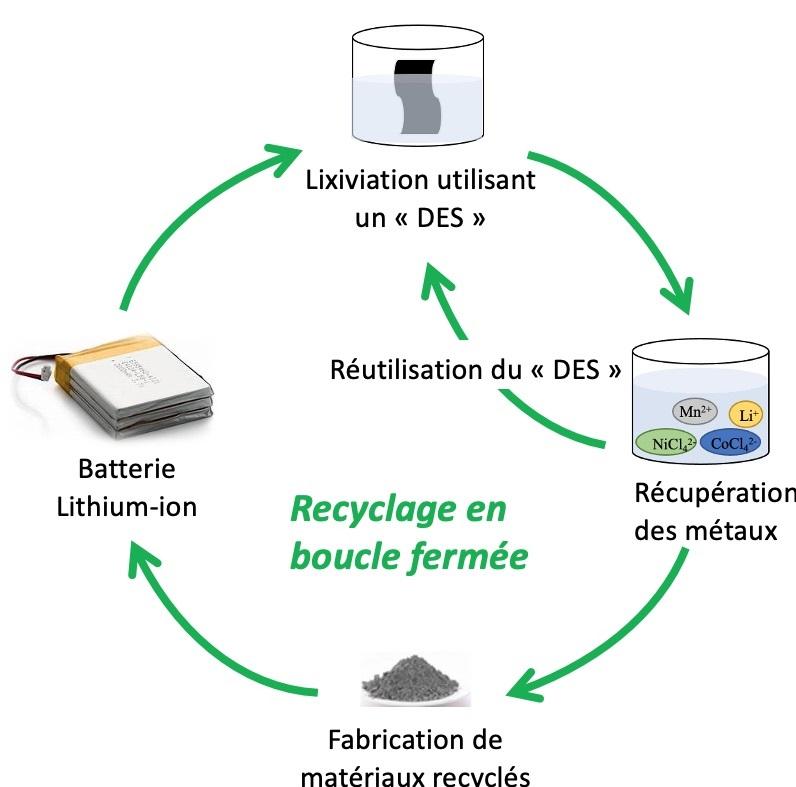PH'D defense Mme Delphine Yetim
Mme Delphine Yetim will present her thesis "Development of an innovative process for the closed-loop valorization of used cathode materials from lithium-ion batteries battery".

| Jean-Claude LEPRETRE | PROFESSEUR DES UNIVERSITES | Université Grenoble Alpes | Directeur de thèse | |||
| Marie LEPAGE MOSTEFA | MAITRE DE CONFERENCE | Université de Lorraine | Examinateur | |||
| Olga KERGARAVAT | INGENIEUR DOCTEUR | ADEME | Examinateur | |||
| Renaud BOUCHET | PROFESSEUR DES UNIVERSITES | Grenoble INP | Examinateur | |||
| Corine BAS | PROFESSEUR DES UNIVERSITES | Université Savoie Mont Blanc | Examinateur | |||
| Alexandre CHAGNES | PROFESSEUR DES UNIVERSITES | Université de Lorraine | Rapporteur | |||
| François TRAN VAN | PROFESSEUR DES UNIVERSITES | Université de Tours | Rapporteur |